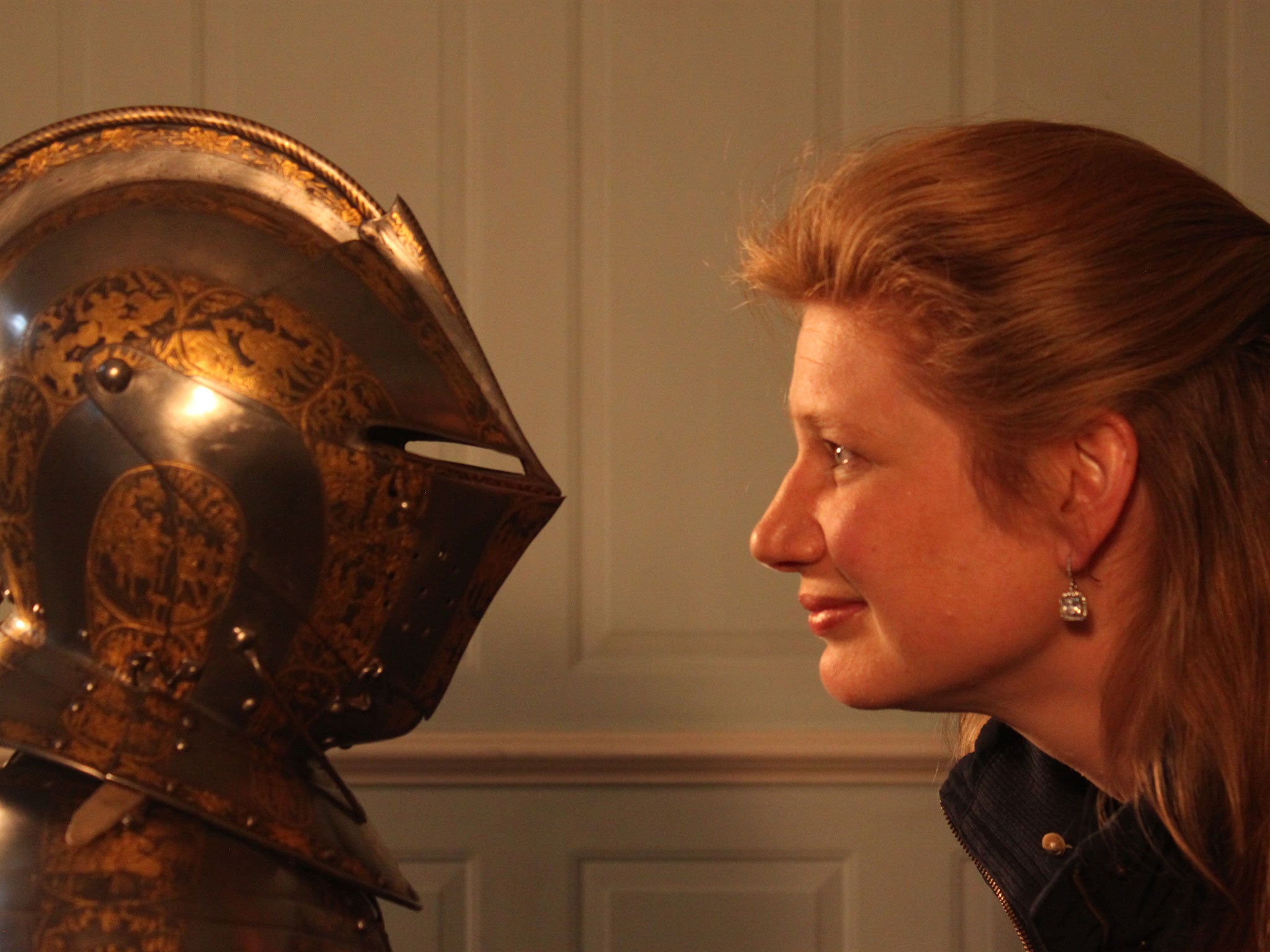Grace Dent on TV: The Stuarts doesn't give light, sideways glances. These are history lessons

As the good people of Scotland mull over independence, it’s worth taking some time to work out how we ended up in this curious, often unsatisfactory four-way group hug at all. Until I watched the rather marvellous The Stuarts on BBC2 this week I can’t say I was wholly certain myself. My fuzzy A-level history recall is of Elizabethan Scotland and England, chalk and cheese, forever battering each other in Berwick and forming hollow alliances with France, or Spain, to keep the other country nervous. I don’t remember Wales being mentioned at all. Then at one point we appear to have joined forces, all as one observing a baggy pact with a swaggering name: “Great Britain”.
The first of this three-part history lesson from Dr Clare Jackson of Cambridge University – and these are lessons, not light, sideways glances at history – explores exactly how King James VI of Scotland achieved this. In short, James did it with smooth talking and scruffy charisma, combined with a PR campaign which hammered home that not only was James chosen by God, but God loves the idea of the United Kingdom. Indeed, why would God make this lovely island and then expect it to be divided? Why would you hack off God? This was, in fact, the greatest “Better Together” campaign of all time.
James’s first speech in England’s parliament was greeted with mild befuddlement and a plan to “hold an inquiry”. Gosh I love it when history throws up examples of how ruling bodies never really change. Game of Thrones, which cherry-picks storylines from a multitude of historical eras, had lulled us into believing that border issues were historically solved via enslavement and mass execution. In fact, 17th-century London reacted to King James’s plans with a committee. Meanwhile, James pulled out the big guns in his brainwashing arsenal: a fancy new coin, not massively unlike a golden £1 coin, featuring symbols of all four countries. Ooh shiny coins! Who doesn’t like a lovely commemorative coin? Still today Britain seems enormously attached to, proud of and soothed by the idea of a shared currency.
Then James commissioned a spanking new edition of the Bible to appeal to a multinational audience, with a letter, OK let’s just call it an advert, pointing out how ruddy lovely it is to be one big country, and God thinks so too. Stop annoying God! In case this approach proved too subtle, James ordered the Earl of Nottingham to start merging the English and Scottish flag into some sort of bold red white and blue affair to pin to the front of ships to warn future colonies that, yes, we are here to steal your gold but, fellas, try to stay chipper as we come, waving a flag, in the name of the Lord.
As Dr Jackson described King James’s innate skill in achieving his own ends, it was hard not to be quietly impressed by his chutzpah. James wanted peace to be given a chance; our nation is proof that he achieved it. Still, James’s attitude to the problem of governing Ireland made uncomfortable viewing even 400 years on. The Protestant king, having made no friend of a hundred or so Catholic rulers, decided that, when they fled, en masse, to Spain, he’d breezily replace them with a hundred other candidates who were more to his liking. Stories of land-grabs, town-rebrands, misplaced families and stolen farms remind us that behind every great plan for peace are the green shoots of more wars.
Dr Jackson pointed out that, despite the unrest, this was a period of relative stability for Ireland. Some might argue that the Irish were simply in shock.
Almost to underline the “in a wonky way, we sort of are better together” case, the episode moved on to James’s successor, Charles, and his plan to intermingle the Stuart dynasty with the all powerful House of Habsburg. Pig-sick of being nagged by Parliament over who to marry, Charles opted to ride his horse for 13 days to Madrid in search of a bride. He stayed in Spain for two months flirting with Catholicism, making all sorts of rash promises to the Spanish and, importantly, soaking up lessons in a different, frantic manner of royal adoration. King Philip, he found, was treated virtually like God on Earth. He gave orders without interference from anyone, spare a few “special advisors”. It was a different manner of governing. It just wasn’t bloody British. By the close of episode one Charles had command of the United Kingdom, was married to a French woman, was ruling like a Spaniard and despite having full access to a horse, hadn’t managed to pop in on Scotland for the first eight years. Perhaps, I wondered, 17th-century Great Britain was the golden age of unity and mutual respect and it was all downhill from then on. Still it seems a shame to change things now. Our coins and our flag are so pretty.
Subscribe to Independent Premium to bookmark this article
Want to bookmark your favourite articles and stories to read or reference later? Start your Independent Premium subscription today.

Join our commenting forum
Join thought-provoking conversations, follow other Independent readers and see their replies